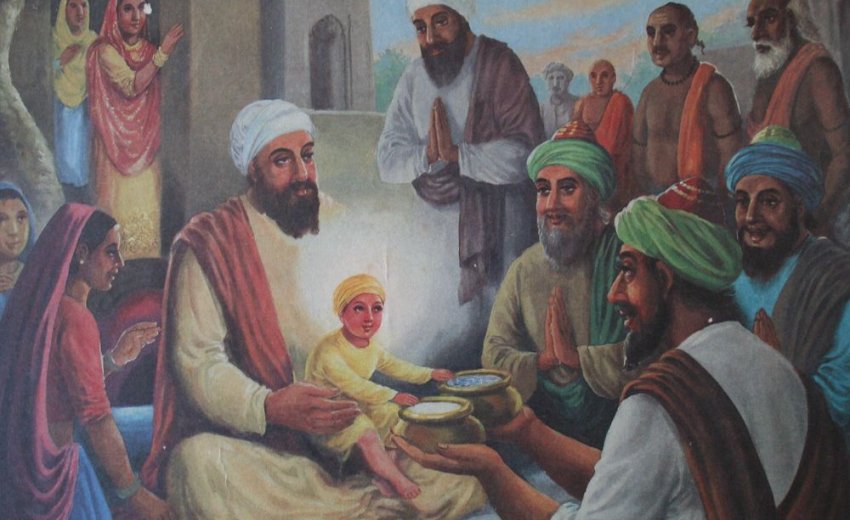There is often debate among Sikhs on which calendar should be used to commemorate historical occasions, particularly the Gurpurabs, or birth dates of the 10 Sikh Gurus.
One school of thought adheres to the Vikarmi lunar calendar, which has varying dates.The other follows the Nanakshai solar calendar, which has fixed dates.
Vikarmi calendars are historical calendars used in the Indian subcontinent. This calendar is based on the solar sidereal year and the lunar month. The Vikram Samvat is generally 57 years ahead of the Gregorian Calendar. Several states in India use it as their regional calendar.
The Nanakshahi calendar is a tropical solar calendar.This system is based on the "Barah Maha" (Twelve Months), a composition composed by the Sikh gurus to reflect the changes within nature. This system begins with the month of Chet, which corresponds to 14 March. In the Nanakshahi calendar, the reference epoch is the birth of Guru Nanak Dev in 1469 CE.
The debate and dispute among the Sikhs over the Birth Anniversay of the Sikh Gurus
The supporters of the Vikarmi calendar, who are mainly Nirmala-oriented Sikhs, emphasize the importance of tradition. According to them, we have no right to reject the Vikarmi calendar since Gurbani makes reference to dates based on it.
The other group advocate the Nanakshai calendar, which was adopted by the SGPC in 2002 but subsequently revoked, are aligned with the Singh Sabha reform movement. They emphasise the usefulness and practicality of fixed dates.
The Nanakshai calendar is also seen as an expression of Sikh sovereignty and identity. Last, they assert religious legitimacy by claiming that it adheres to the 12 monthly framework mentioned in the Guru Granth Sahib in the bani of 'Bara Maha.'
Confusion over the Prakash Purab date of Guru Gobind Singh in 2019
Due to this split, significant events like the birth anniversary of Guru Gobind Singh is celebrated on different days.
In 2019 majority of the Sikhs celebrated it on 5th January 2019, which according to the solar calendar is the actual date of the Guru's birth.
However, other Sikhs and the Shromani Gurdwara Prabandak Committee (SGPC), which has control over a number of historical Gurdwaras in India including the Darbar Sahib in Amritsar, work from the lunar calendar and record his birth as 22nd Dec 1666. As a result of minor shifts the Prakash Purab of Guru Sahib fell on the 13th of January in 2019.
Nanakshai Calendar was established primarily to eliminate confusion by fixing dates, but because of political and theological differences, the situation has become more confusing than ever.
The controversy does not only affect Sikhs
A neutral observer may be surprised that Sikhs are divided over such a simple issue, but calendars have historically divided all communities. There was a major dispute between the Jews of Palestine and Babylon in 921/2 AD. It took 300 years for the issue to be resolved.
Although the Julian Gregorian calendar is universally recognized as being based on the movements of the Sun and rooted in the birth of Christ (BC Before Christ, AD anno Domini, 'in the year of the Lord'), Afghanistan and Iran follow the Solar Hijri calendar, whereas Ethiopia has its own and Nepal follows the Vikarmi calendar.
According to Gurmat, no one day is more special than another when it comes to celebrating the birth of our Gurus or remembering what their sacrifices and teachings.
Mahe divas murat bhale jis ko nadir kare (Barah Mah, Manjh)
In Gurbani, all days are created by God, and no day is inauspicious. The person who understands the processes of nature put in place by God will find all months and days auspicious.
Each day of our lives should be a day to remember and celebrate the presence of the God who created us. It is a fervent appeal to Sikh intellectuals from both schools of thought to come together and find a solution; there is no other way forward.
*Based on an article by Dr Gurnam Singh, Associate Professor of Social Work, Coventry University, UK and a presenter on the Akaal Channel.

